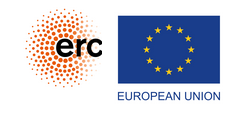Frankfurt Jewish Study House
Founded by the German-Jewish theologian and philosopher Franz Rosenzweig (1886 – 1929) in 1920, the Frankfurt Jewish Study House (Freies Jüdisches Lehrhaus) was a crucial locus of Jewish intellectual life during the interwar period. The school was known for its strong anti-assimilationist stance, seeking a committed return to the pre-modern sources of Jewish identity.
For Rosenzweig, the Jews were a people standing outside of history – a relentless struggle for power, war and violence – and thus the Jews were an embodiment of eternal peace. Rosenzeig also rejected hermeneutic methods which sought to interpret scripture through its placement in historical contexts; texts were to be interpreted as they are in-themselves, with focus on the integral component parts – the narrative structure, style, language and use of metaphors in a given text.
The Lehrhaus became associated with intellectual figures such as the sociologist Leo
Löwenthal (1900 -1993), the cultural critic Siegfried Kracauer (1889 – 1966), the psychologist Erich Fromm (1900-1980), and the philosophers Leo Strauss (1899 – 1973), Ernst Simon (1899 – 1988) and Gerschom Scholem (1897 – 1982), who held to a wide variety of different political and ethical positions. The issue of political Zionism proved particularly divisive, with Rosenzweig fearing that the establishment of a Jewish state would embroil the Jewish people in the midst of the history he sought to avoid. The Lehrhaus was finally closed in 1938 by the Nazi regime, although many of its students and instructors would remain or become highly influential after the war.
Dialectical theology
The disillusionment following the outset of World War I left an imprint on European religious thought. The previous hegemony of liberal theology – which had stressed the immanence of God and the capacity to know the divine through reason – was challenged by a new theological movement which came to be known as dialectical theology (also known as the “theology of crisis”).
Dialectical theology rejected the historisation, subjectivistion and culturalisation of Christianity, emphasising instead the timeless transcendence of the divine – and argued that any attempt to gain knowledge of the essence of God through reason would inevitably end in irresolvable contradictions and tensions. The legitimate source Christian doctrine could only be divine revelation. The horrors of the war had convinced many that promises for the salvation of mankind through reason and technology were untenable; against progressive notions of an “overcoming” of sin, dialectical theology revived emphasis on sin as part of the human condition, which could only be overcome through the grace of God.
Dialectical theology is most often associated with its leading figures such as Karl Barth (1886 – 1968), Friedrich Gogarten (1887 – 1967), Eduard Thurneysen (1888 – 1974) and Emil Brunner (1889 – 1966). The movement was not constrained to theology, as its leading thinkers often dealt with a much wider field of political and ethical concerns. For Barth, nationalism and imperialism that had triggered the war were an outgrowth of the culturalisation and historisation of Christianity.
As a movement, dialectical theology proved highly influential in both Europe and North America, and continued to remain so until the rise of liberation theology during the 1960s.
“The reason sees the small and the larger but not the large. It sees the preliminary, but not the final, the derived but not the original, the complex but not the simple. It sees what is human but not what is divine”. Karl Barth “The Righteousness of God” (1916) in The Word of God and the Word of Man (1928)


